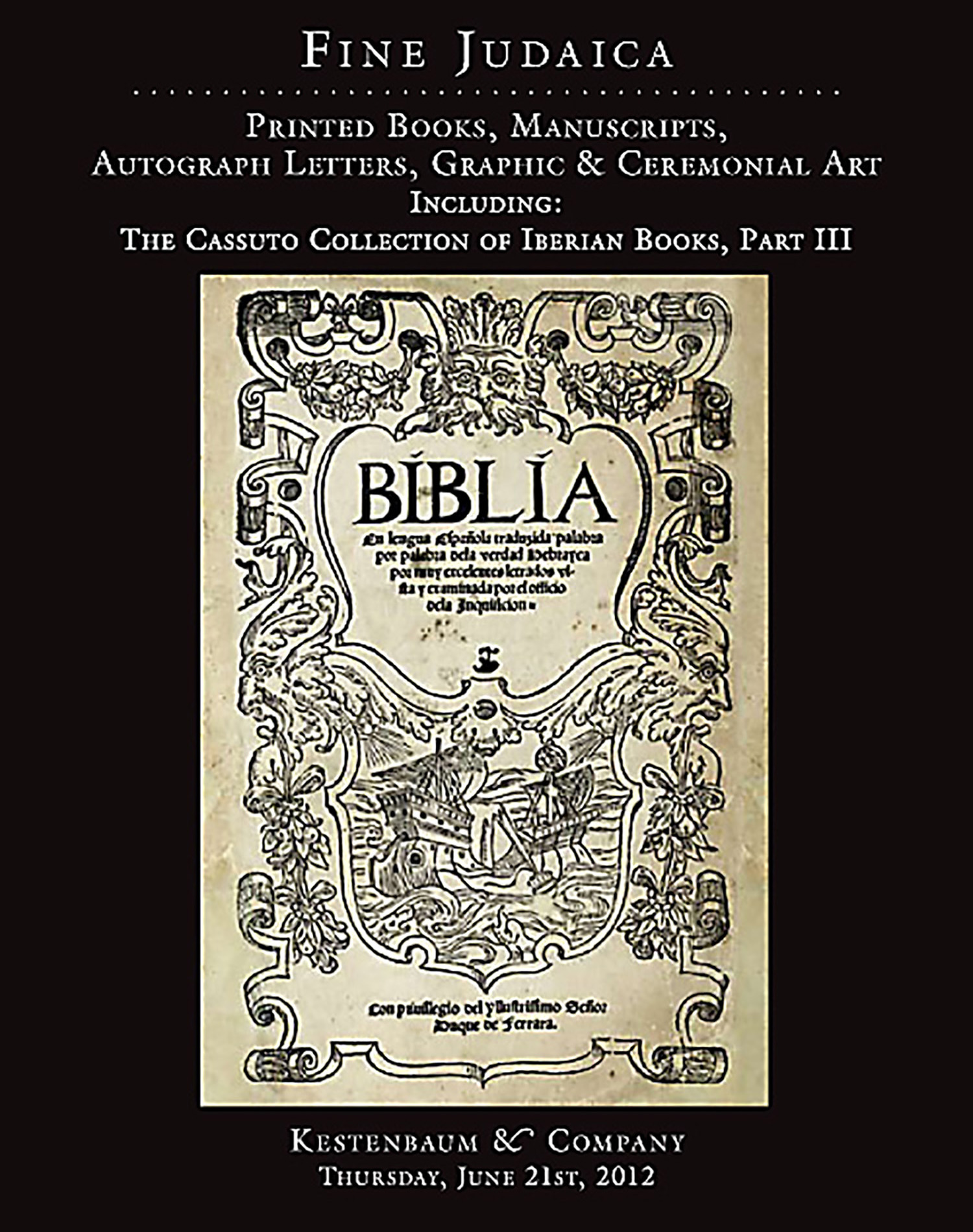WESSELY, NAPHTALI HERZ (HARTWIG).

AUCTION 55 |
Thursday, June 21st,
2012 at 1:00
Fine Judaica: Printed Books, Manuscripts Autograph Letters, Graphic & Ceremonial Art
Lot 231
WESSELY, NAPHTALI HERZ (HARTWIG).
Berlin: Chinuch Ne’arim / Jüdischen Freyshule 1782-85
Est: $800 - $1,200
PRICE REALIZED $800
<<FIRST HEBREW WORK ON JEWISH EDUCATION IN THE SPIRIT OF THE HASKALAH.>>
The Act of Tolerance of 1782 required Jews to establish trade-schools, with German as the language of instruction. Wessely felt this innovation would be greatly beneficial, arguing in his Divrei Shalom Ve’emeth that Jewish education should include studies in “human knowledge” that incorporates the totality of secular culture, especially the moral, mathematical and physical sciences. According to Wessely, such general education necessarily precedes religious instruction as it is not possible to understand Divine teachings without secular acculturation. Wessely concludes that he who studies the Torah without acquiring common secular knowledge is a burden upon society. Wessley’s pamphlet met with opposition among traditionalist rabbis. These rabbis regarded the Act of Tolerance with scepticism, fearing its implementation would promote assimilation. They were outraged that at such a critical juncture, a fellow Jew would not only urge the unqualified application of the Act’s measures but additionally assail the prevalent system of Jewish religious education. Among the Rabbis who opposed Wessely were Elijah Gaon of Vilna, Noda Biyehuda of Prague (who pronounced a ban on Wessely’s writings), David Tevele of Lissaa and Tevele Katz Schiff of London.
In Rav Tov LeBeith Yisrael, Wessely responded to the questions put to him by the rabbis of Trieste. Wessely responded to his opponents from Poland in the epistle Eyn Mishpat, a collection of opinions of Italian rabbis endorsing his views on Jewish education. Finally, Wessely restated his arguments and defended his new educational program in Rechovoth.
See M. Carmilly-Weinberger, Censorship and Freedom of Expression in Jewish History (1977), pp. 111-13; A. Altmann, Moses Mendelssohn, A Biographical Study (1973), pp. 476-86.
